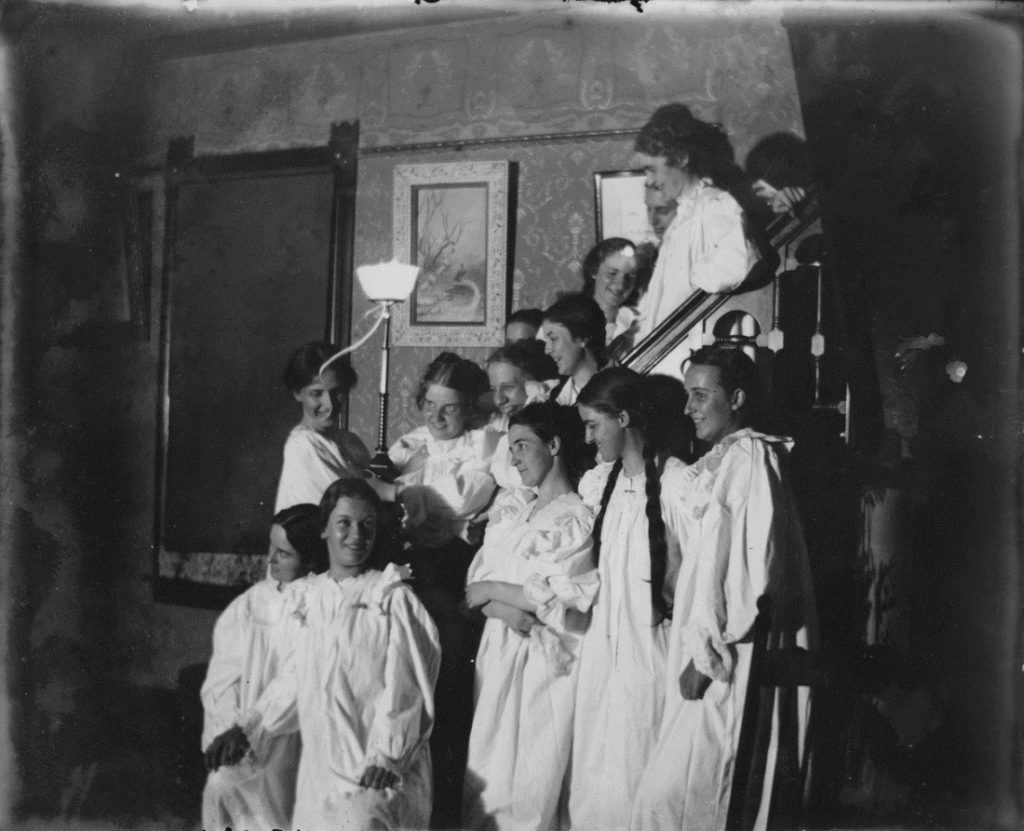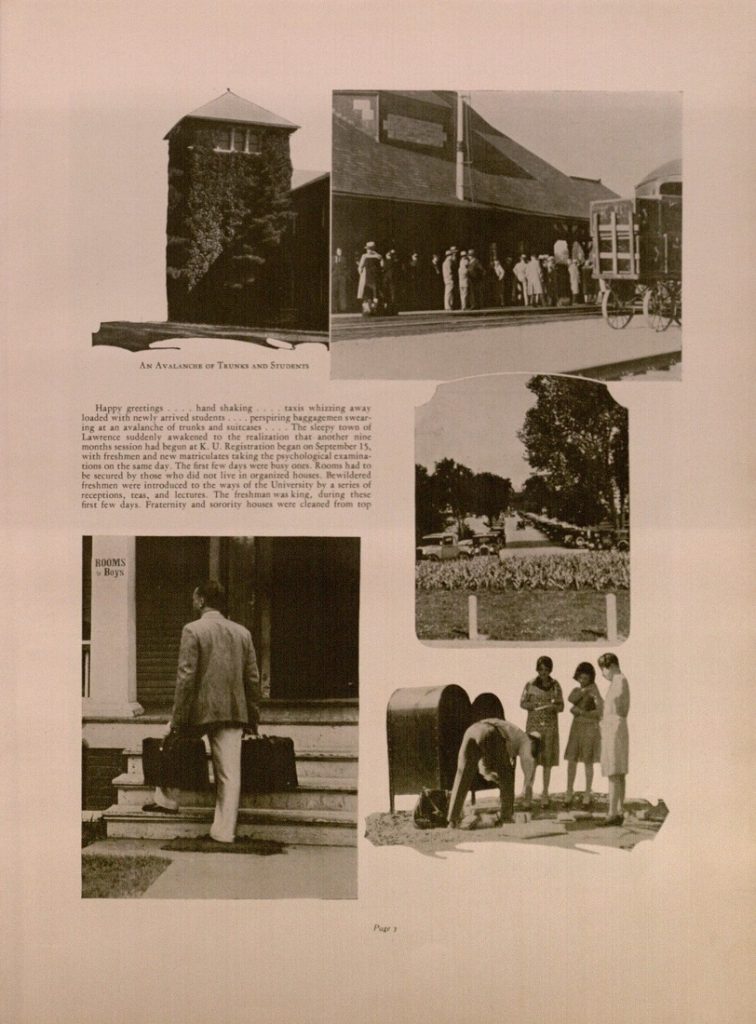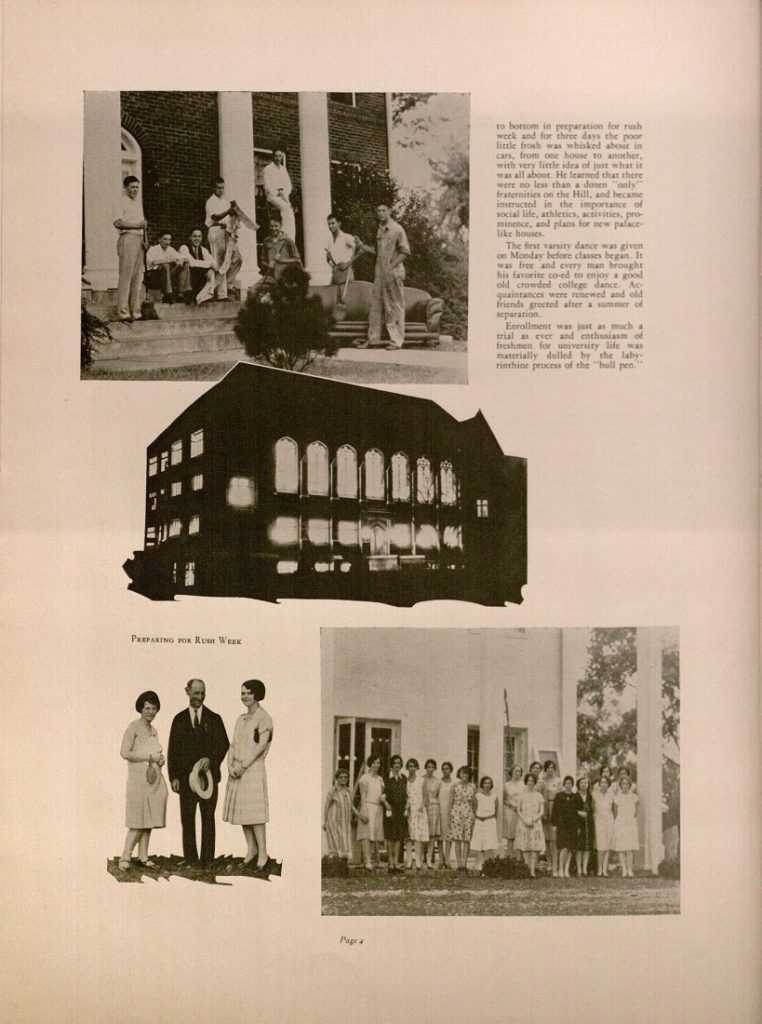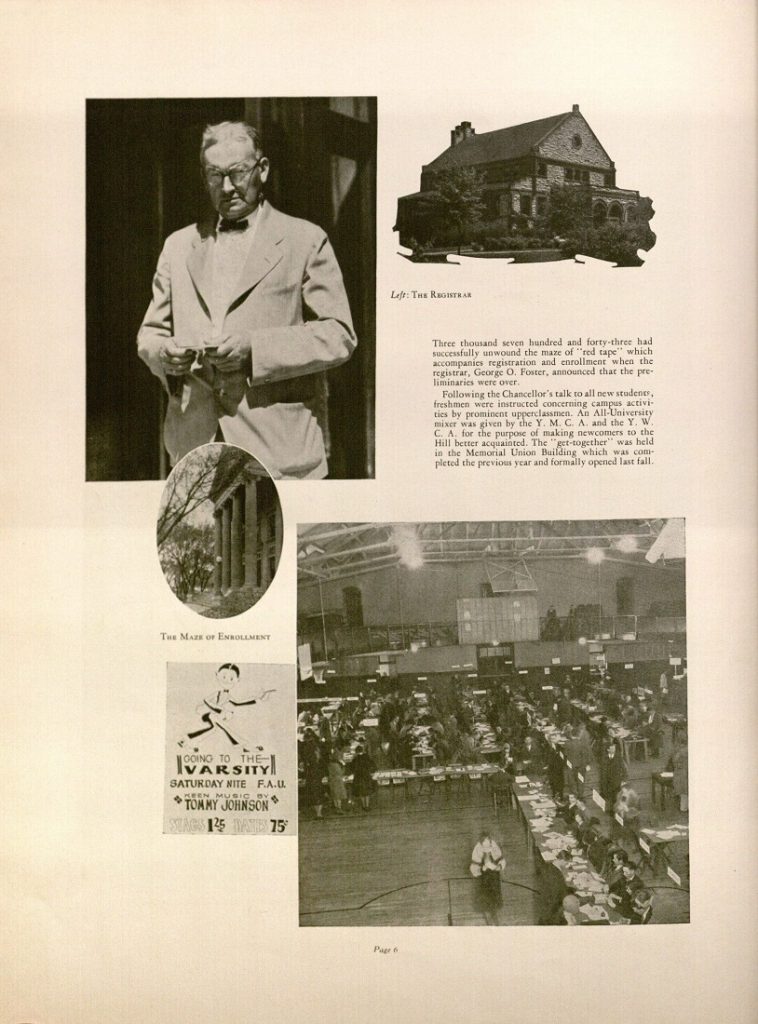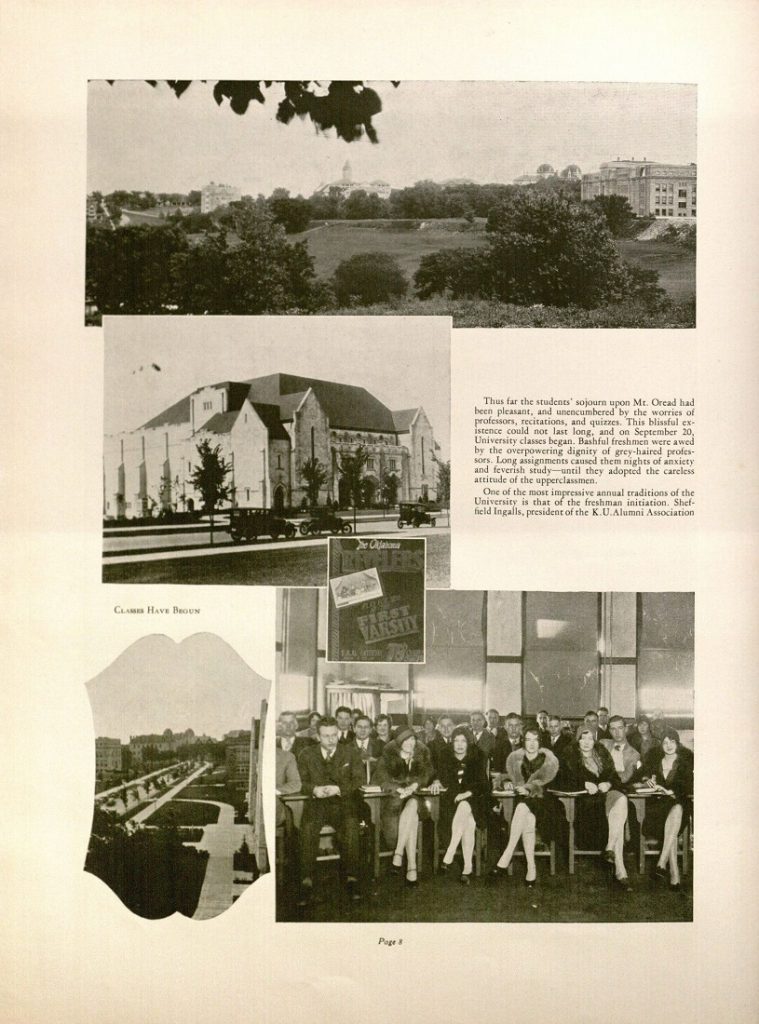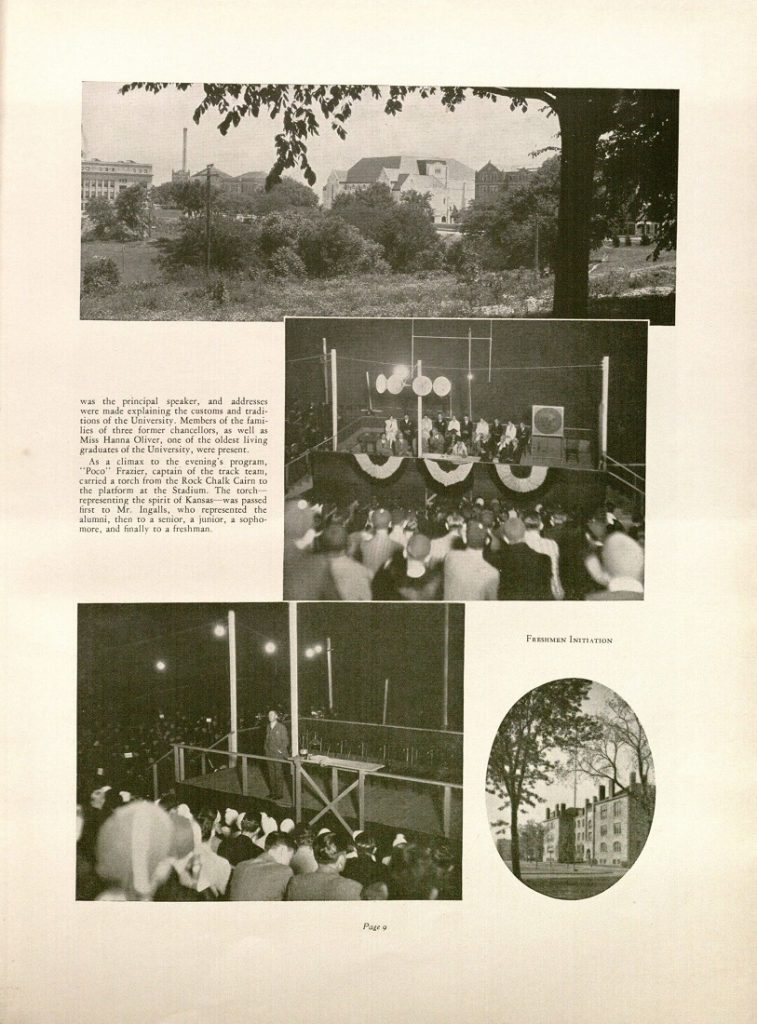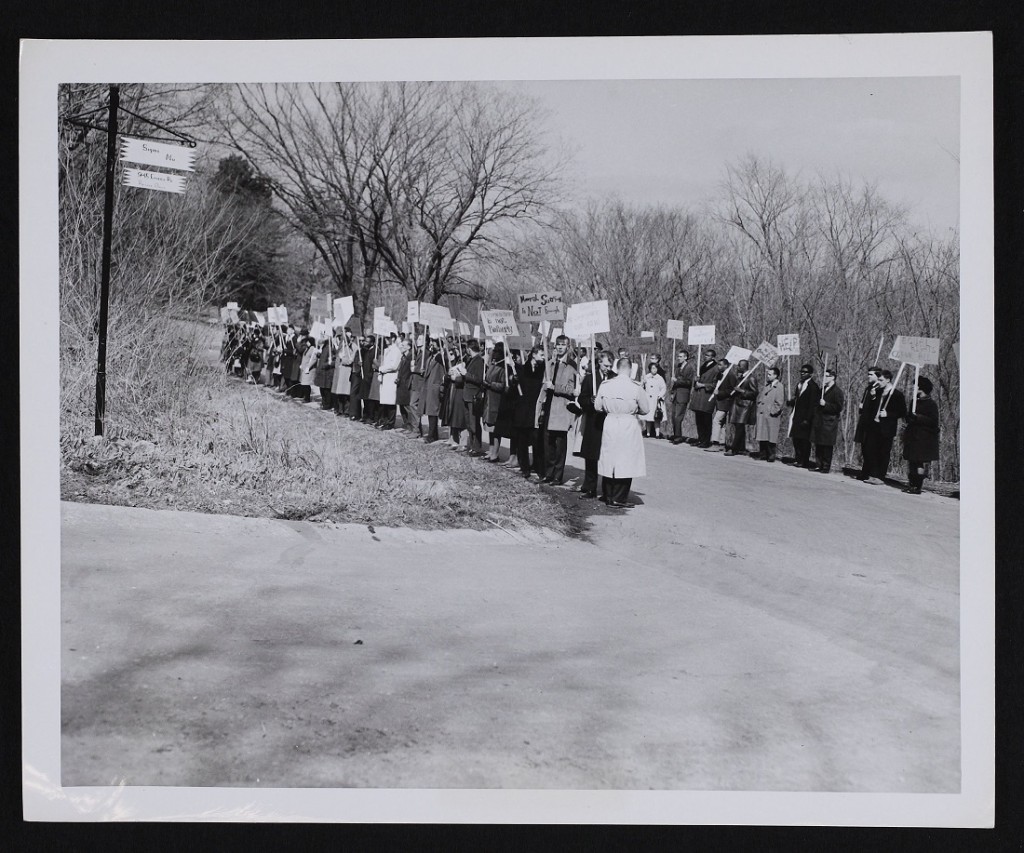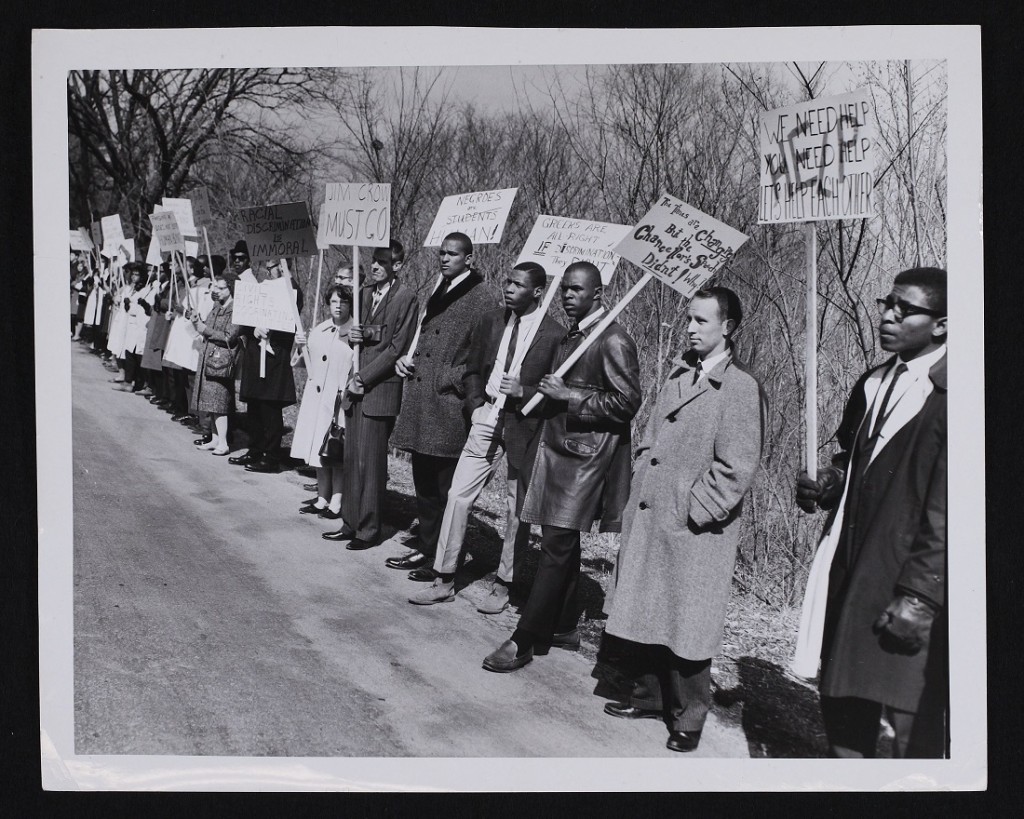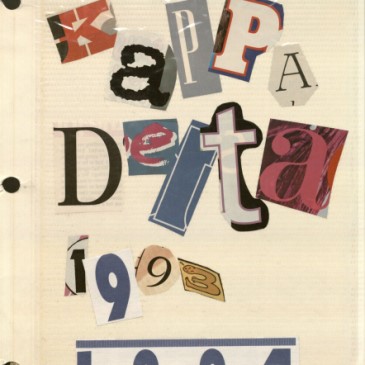
Kappa Delta scrapbook title page, 1993.
Kappa Delta Scrapbooks, 1989-1998.
Call Number: RG 67/459.
One thing that sets Spencer Research Library (SRL) apart from other on campus jobs at KU is that student workers get to see the importance of well-maintained historical records first hand. As a history major, working around these materials is an amazing experience and inspiration. This background got me started on my Undergraduate Research Project, which works within the University Archives.
During a historical research methods class in Spring 2016, it became apparent to me that a great way to evaluate the changing social history of KU is through Greek life records. This is because each chapter keeps detailed minutes on weekly proceedings; records their events through monthly or yearly reports; and has a plethora of pictures and a rich collection of ephemera such as t-shirts, banners and flyers.
However, when examining the archives, I found that there are significant gaps of multiple years in the records of the Greek houses. Usually, there is little to no material after the 1980s. While KU students are still engaged in Greek life, this gap showed me that the materials simply are not being deposited into the University Archives. There could be several reasons for this; perhaps many Greek chapters are switching over to mostly paperless records, or perhaps the chapters do not know that SRL would be interested in their records. Either way, this seemed to me like a problem that needs addressing. With encouragement from my history professor Jonathan Hagel, I utilized my background at SRL and my connections to Greek life at KU to get the KU Greek Archives project off the ground.
My project is twofold. First, I’m conducting a survey of the University Archives to get a more complete picture of the types of materials that are already in the library and which Greek organizations are represented. Once this is complete, the gaps in the historical record where there are little to no materials will appear and indicate what years to focus on when gathering materials.
The next step is reaching out to the Greek chapters still currently on campus to see what materials they have in their possession that they would be willing to donate to University Archives. This process has taken the form of attending Panhellenic meetings with all of the chapter presidents to explain my project and sending many emails to chapter presidents and historians.
In the midst of the outreach and the archival survey, I wanted to use my own chapter, Kappa Delta (KD), to catalyze the process and lend credibility to my project as a sort of trial period. To begin, I looked around my chapter house for any relevant materials. Since KD is one of the newer houses on campus, the materials I expected to find would not be as old as some of the other chapters at KU; at the earliest, these sources would originate from KD’s establishment in 1990. The sources I did find are rich in the history of my chapter as well as others in the Greek community.
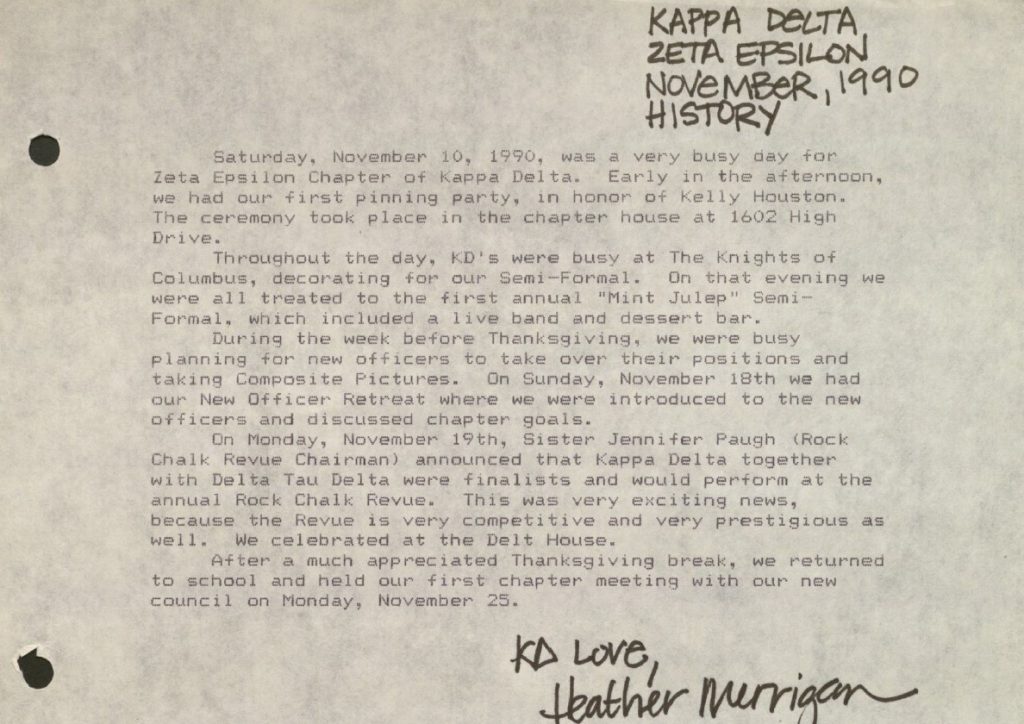
Excerpt of the Kappa Delta historian’s report, November 1990.
Kappa Delta Scrapbooks, 1989-1998. Call Number: RG 67/459.
Click image to enlarge.
The most common materials are scrapbooks. These depict Kappa Delta’s new members, the remodeling of the house, and the first few years after Kappa Delta was established. Additionally, I found a binder of historian’s reports, which are composed of several pages summarizing each month’s activities of the KDs. Paired with some of the photographs in the scrapbooks, I found a comprehensive record of Kappa Delta from its founding in 1990 to about 2008.
While filling the gaps in the archival record is important, ensuring that the record is current is vital to the social history of KU. But gathering sources that are more current presents a problem. While Greeks are still documenting their social experience at KU, the majority of this is now digital. Minutes are distributed electronically, and scrapbooks can now be made in the form of videos posted online. Electronic minutes and records can always be printed and donated to University Archives, but saving videos is a problem that I have not yet explored.
As my project continues, I hope to uncover many more sources from each individual chapter at KU. However, this project cannot be complete without the participation of those in the Greek community. Several chapters have offered to donate materials, and I hope to recruit many more.
For more information about my project, please check out my blog.
Check out the Spencer website to learn about the University Archives records of student life and about the process of donating materials to the library.
Shea O’Sullivan
Public Services Student Assistant

